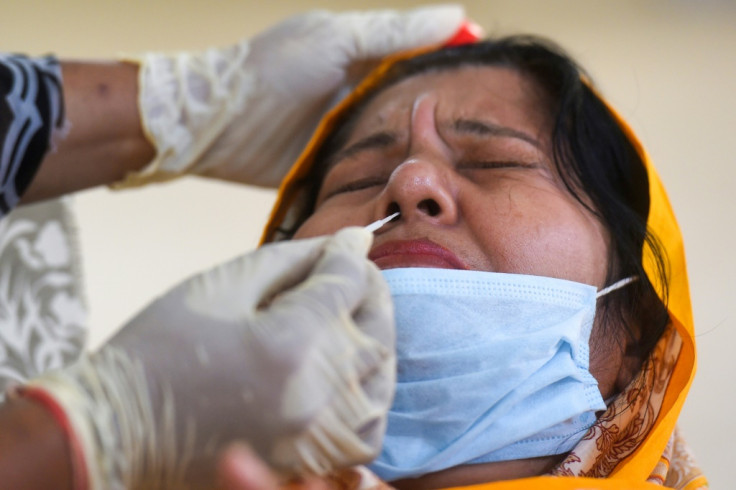COVID-19 rapid test: New breath test able to detect coronavirus in minutes
Researchers used equipment that analysed single breath samples and were able to identify Covid-19 from other chest infections almost immediately
A device used for breath analysis developed in south Wales may be able to identify Covid-19 from other chest infections almost immediately. Studies published in the Lancet revealed that trials done by developers Imspex Diagnostics could have the devices ready for use by May 2021.
The technology that was used was originally utilised in developing tests to detect lung cancer. At the same time, this was also used to ascertain bacterial from viral respiratory disease within a short period of time. But as the coronavirus continued to wreak havoc, Imspex made the decision to focus its diagnostic efforts in finding ways to work around the disease that has been gripping countries in a global pandemic since March.
Trials led by Loughborough University have been carried out on hospital patients in Edinburgh and Dortmund, Germany. Researchers used equipment that analysed single breath samples, wherein volatile chemicals present can be detected in the expelled breath. This in turn, gives evident clues as to why the patient is suffering from respiratory issues.
The test results were able to determine a specific signature for Covid-19 in the chemicals, which has been confirmed by the traditional swab test done for coronavirus on the patients. The study revealed that they were able to accurately predict Covid-19 in 80% of the cases, as well as distinguish other health issues like bacterial pneumonia and asthma.
Moreover, researchers were also able to identify chemical compounds that carried a significant predictive power for its severity in the covid-infected person and determine if it may eventually cause death, the BBC wrote.
The scientists were able to conclude that their studies indeed showed reliable and rapid identification and exclusion of Covid-19 when used in emergency departments and primary care. The rapid and more accurate results provided could help improve safety management for both patients and healthcare staff.
The company said it still needed to refine the technology before it can be used in everyday situations. According to Santi Dominguez, founder and chief executive of Imspex Diagnostics, finding the right support is the company's priority for it to gear up on its resources and produce the device in sufficient numbers.
"We are a small company, if we had to do this ourselves with the current resources we have, we are 12 to 18 months from getting a solution. But we could probably get to market in under six months with the right support," Dominguez explained.

© Copyright IBTimes 2025. All rights reserved.





















